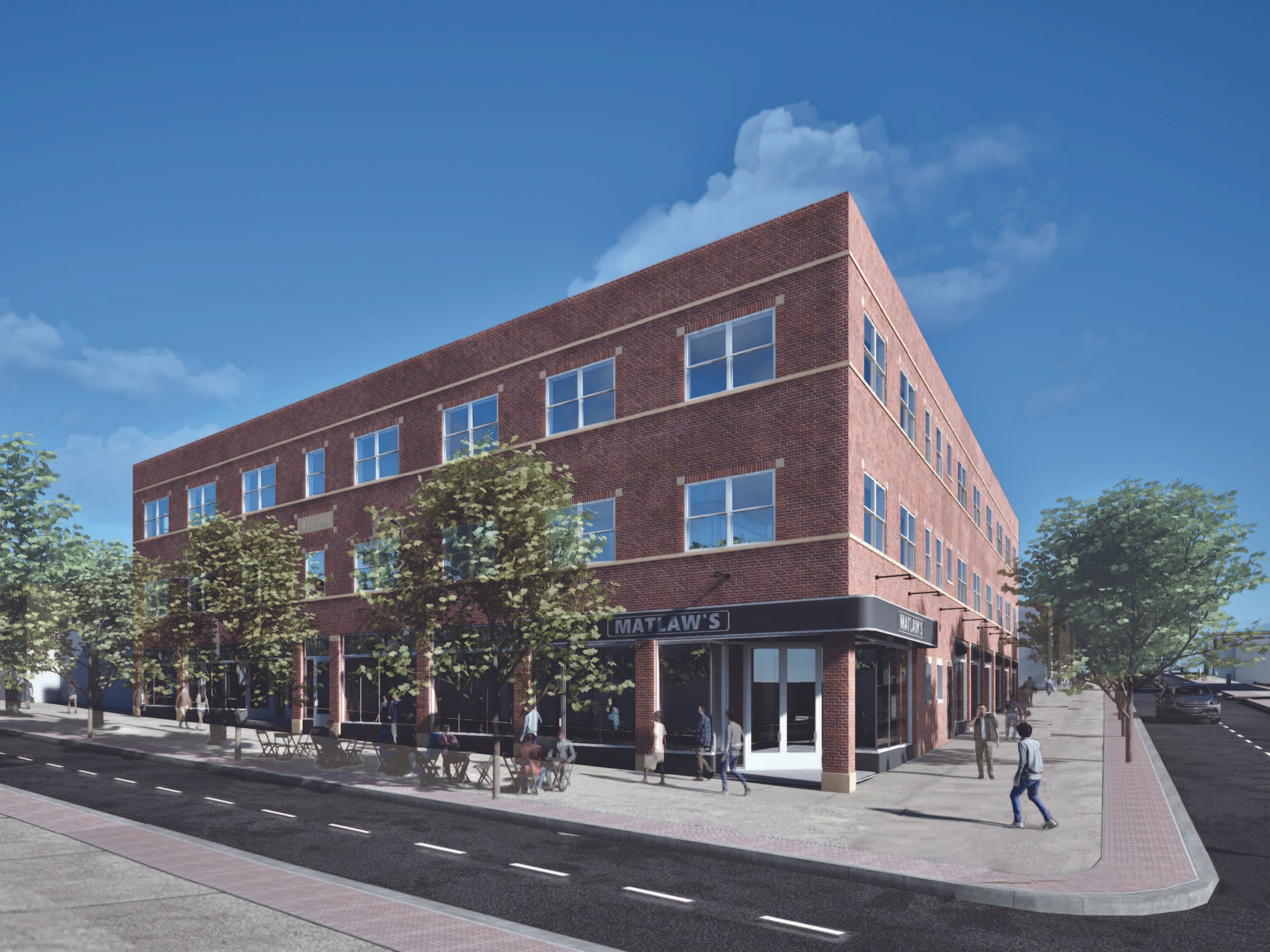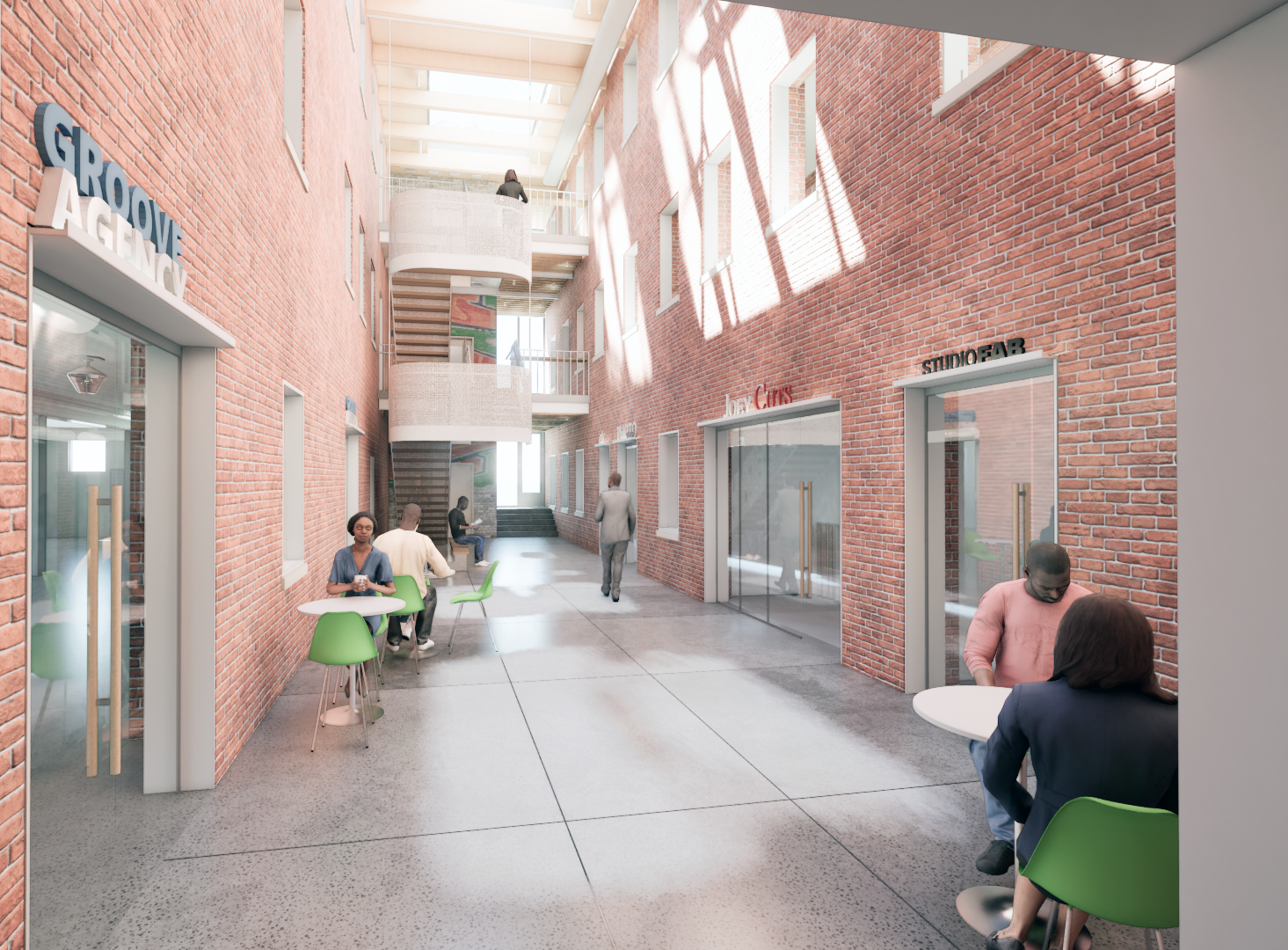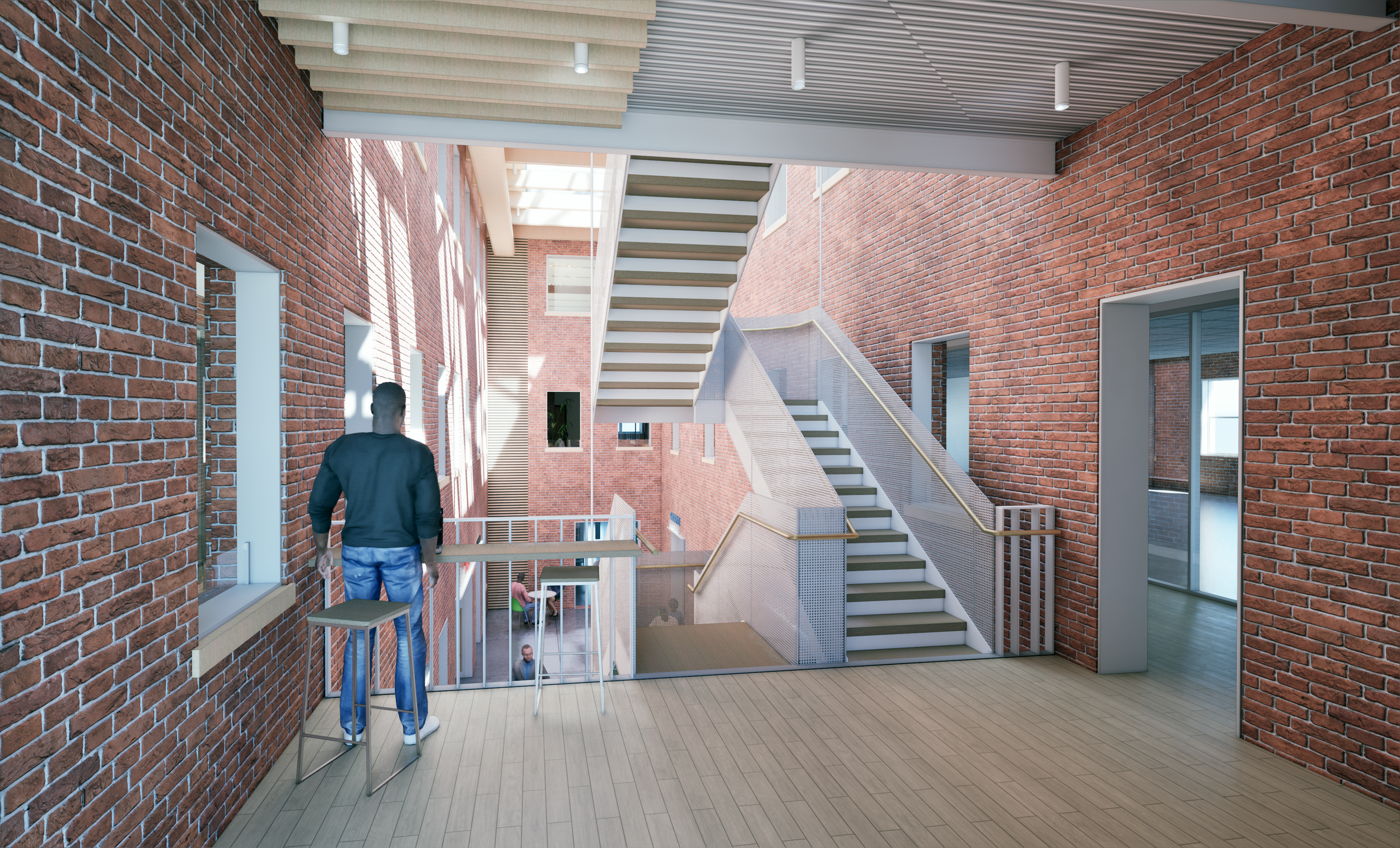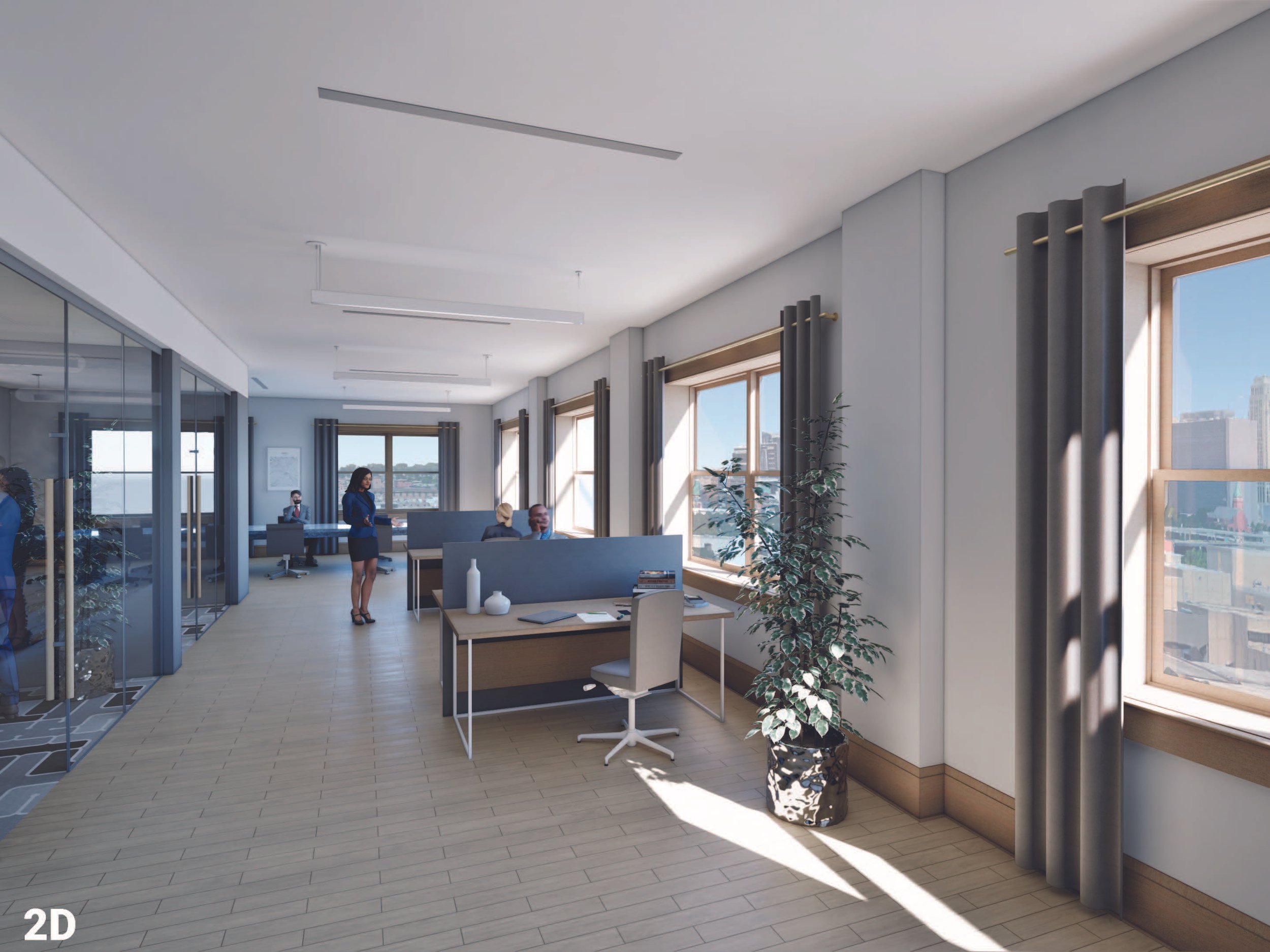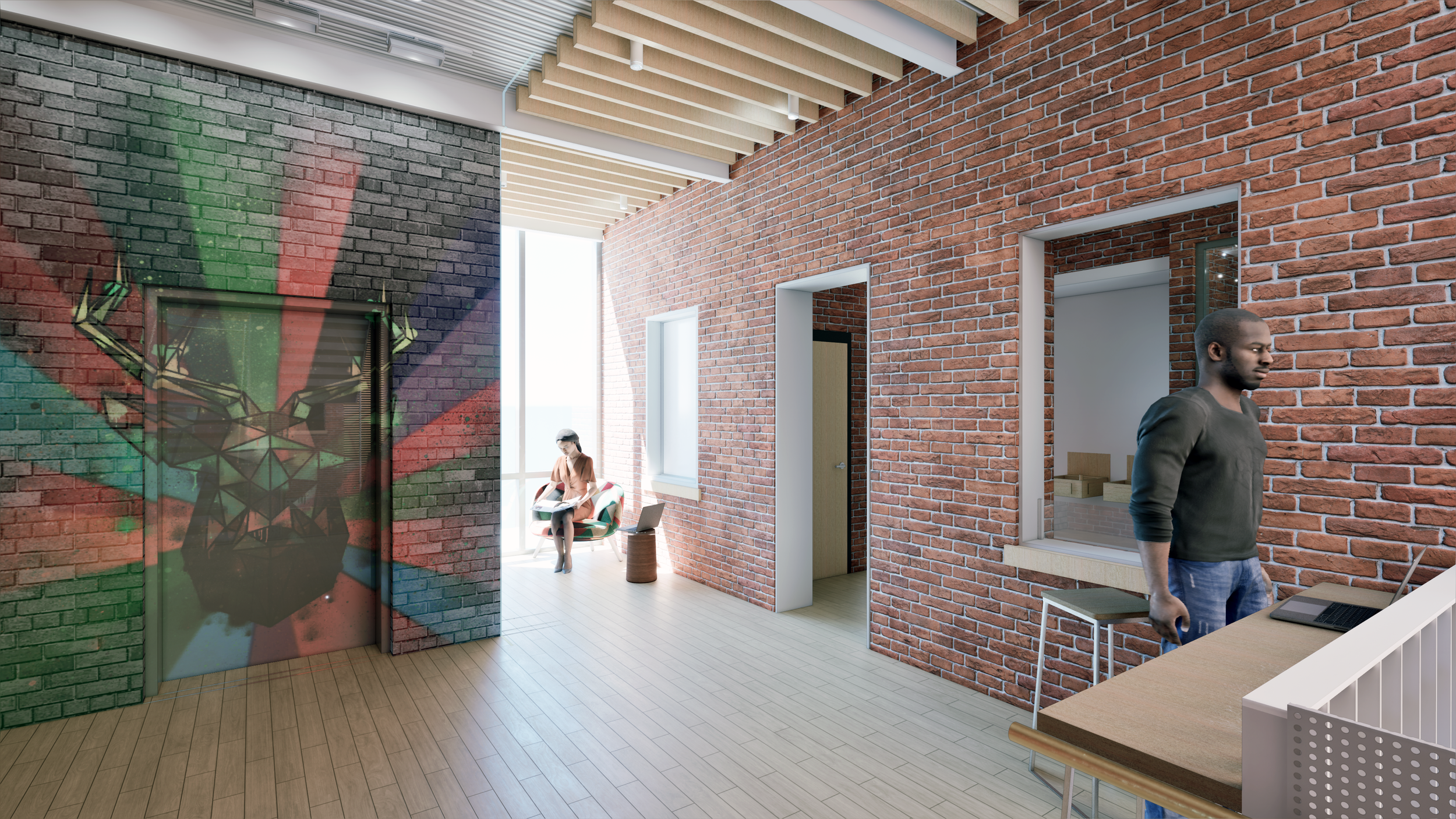$11M Renovation Adds to Lincoln Building’s History of Entrepreneurship, Community Connection
Henry C. Service, CEO of The Service Law Offices of Kansas City
For more than one hundred years, the Lincoln Building has served as a cornerstone of commerce and community in the 18th and Vine district.
The historic district—known worldwide for its early influences on Jazz—began in 1879 and became a vital economic hub for Black entrepreneurs and community leaders in segregated Kansas City.
“The building means a lot to me,” said Henry C. Service, CEO of The Service Law Offices of Kansas City and owner of the Lincoln Building. “It represents what the African American community can do if given some breaks and opportunities to thrive.”
Service purchased the building in 2017 and plans to preserve its legacy as a nucleus of community connection and Black entrepreneurship.
“As the area gentrifies, I hope to be able to provide a central location for businesses that traditionally operated out of the building throughout the Jazz District’s history,” Service said.
The Lincoln building, built in 1921, was a cornerstone of 18th and Vine commerce. On its ground floor, it housed the Lincoln Furniture Company and Matlaw's, a men's clothing store. In addition to office space, the building also hosted Lincoln Hall, a music and dancing venue. Later, in the 1940s, the Kansas City Monarchs baseball team set up offices in the space.
Over the years, many Black Kansas Citians leveraged the district as a safe space to build businesses and a new way of life in the face of segregation.
“I purchased the Lincoln Building as an investment, to preserve it for the community that traditionally relied upon the building as a safe and affordable place to do business,” Service said, who plans to renovate the restaurant on the corner of 18th and Vine Streets into an entertainment venue.
Others used the Lincoln Building to fight segregation, including Thurgood Marshall, who operated out of the NAACP offices in the building during the 1951 legal battle to desegregate the Swope Park Pool. Marshall would later make history in 1967 as the first Black person to serve as a Supreme Court Justice.
Service is now working diligently on an $11 million renovation of the Lincoln Building.
In addition to refreshing the space with artwork and modern amenities, the remodel will accentuate the building’s historical attributes, including its light-filled entryway and exposed staircase. He also plans to create a coworking space to reestablish the Lincoln Building as a convenient, central location for entrepreneurs. Check out the gallery below to see what the space will look like.
Service said the renovation should be completed in the summer of 2025 and will tie in nicely with another large development for the area: the 18th Street Pedestrian Mall. The $5.4 million project will reduce car use in the district, make it easier for pedestrians to move around and create more flexibility for events and markets. The plans aim to make more community assets accessible, including the Negro Leagues Baseball Museum, the American Jazz Museum and the historic Blue Room jazz club.
A rendering of the 18th Street Pedestrian Mall
Service added that he supports the project and the vision to re-vitalize it.
"It is a welcome change in the investment strategy for the area,” Service said of plans for the pedestrian mall. “We support it whole heartedly because it will bring a new look and utility to the area.”
Many lenders do not look favorably at the Jazz District as compared to other growing neighborhoods in the Kansas City metro, Service said.
Despite an excellent credit rating, money, and equity, Service encountered barriers to business financing to fund his plans with the Lincoln Building. He eventually secured a loan with AltCap which was helpful as he waited for other funding sources to come through, including tax credits.
“Working with AltCap on my loan was good. The process was seamless and easy to negotiate,” Service said. “I was always able to speak with the people helping with the loan, and the folks were always friendly and compromising."
Only a generation away from laws restricting Black entrepreneurs from accessing capital, Service said he hopes lenders will reconsider their approach to supporting entrepreneurs in the 18th and Vine district.
“This community needs the money,” Service said.
